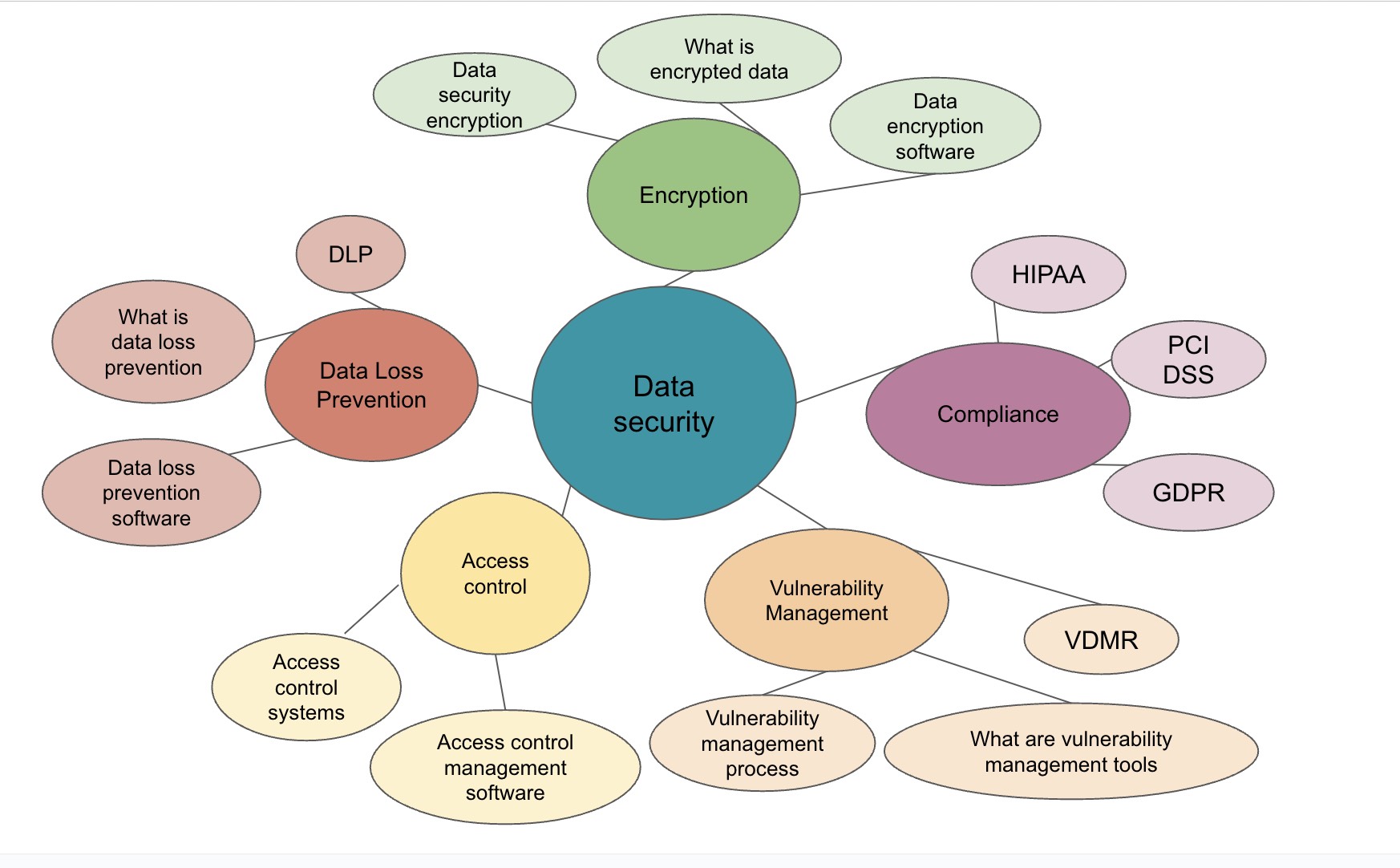Keyword mapping just sounds like a Herculean task. The idea of mapping anything sounds overwhelming, as if you need to understand the entire topography of the landscape before you can get started. But fear not! While choosing the right keywords to map to a website’s pages might seem like a heavy lift, this post will show you how the MKG Approach can simplify and streamline this foundational SEO task.
You’ll learn:
- The definition of keyword mapping
- Why keyword cannibalization is bad for websites and other living things
- What search intent is and why it matters
- How to perform keyword mapping the MKG way
What Is Keyword Mapping?
Keyword mapping is the process of selecting the most applicable, unique, and commercially relevant keyword for optimizing a page. Once a keyword has been mapped to a page, that keyword should be incorporated into the page’s metadata and on-page content, and its performance tracked to understand the page’s progression through the SERPs.
Keyword mapping involves understanding your users’ search intent–which is essentially why users are searching for a given query, which we’ll talk more about in a minute–and matching your content to their needs in the given moment.
Why Does Keyword Mapping Matter?
Without keyword mapping, multiple pages of content from the same website often compete against each other for the same keyword phrase, a phenomenon known as cannibalization. In the simplest terms, cannibalization means your website’s own pages are gobbling up clicks and traffic from the other pages on your site. Instead of sending organic traffic to many internal pages on your site, keyword cannibalization concentrates your traffic, sending it to just a few lucky pages instead of throughout the site. Unless each one of these pages is the mega-best-top-only-guide-you’ll-ever-need on a given subject, there’s probably a more relevant page on your site for many searchers.
Since the practice of eating others–either pages or humans–is unfortunate for all involved, we don’t recommend it. Cannibalization can happen when:
- SEOs are lazy
- Sites are huge and unattended to, SEO-wise
- Multiple teams are creating content without understanding the overall content strategy.
The fix is simple: a site keyword audit with a tool like SEMrush can help you identify if cannibalization is an issue for your site.
Keyword mapping also allows you to create topically related keyword clusters, which can build massive amounts of topical authority for a given subject and provide a logical structure for internal linking on your website. If you search for “keyword cluster example,” you’ll see lots of e-commerce and lifestyle content examples, but not necessarily examples from B2B tech & cybersecurity websites.
Well, that’s what we’re here for. Keyword clusters might look something like this, if you’re trying to achieve SEO dominance for the topic of “data security”:

In other words, without keyword mapping, the keyword strategy on your website will be a free-for-all. Keyword mapping brings strategy and intentionality to your SEO efforts, ensuring your website shows up as the right answer to your users’ queries at the right moment in their search journeys.
A Word About Search Intent
To fully understand how to perform keyword mapping, we must fully understand the concept of “search intent.” Search intent refers to the why behind the search and what search result the user is hoping to find.
Generally speaking, we can group search intent into four categories: informational, commercial, transactional, and navigational. Informational searches are for learning more about a topic (TOFU), commercial searches are for researching products or services (MOFU), transactional purchases are for buying something (BOFU), and navigational searches are for going to a specific website (anywhere in the funnel).
SEMrush, the tool we use for our keyword research, categorizes keyword phrases by intent, which makes the process easier. But it’s also possible to determine the intent of a search phrase by stepping into the mind of the searcher. Phrases like “what is” or “why does” or “how to” indicate an informational search, while phrases with “best,” “top,” “reviews” or “vs” in them indicate a commercial search.
Matching keywords to intent ensures that you meet your users where they are at in their buyers’ journey, capturing the click in the SERPs and delivering the most relevant content to move them to conversion.
How Should I Perform Keyword Mapping?
The basic process looks like this:
- Establish the landscape for your topic by exporting a list of every indexed page on your website and the keywords each page is ranking for
- Since SEMrush is our primary in-house SEO tool, we would use its Organic Research report to gather this information
- If SEMrush’s Position Tracker is set up, you can also consult its Cannibalization Report to jumpstart your research
- Google Search Console is a free source for this data, although any downloads from this platform will require more cleanup and analysis
- Decide which keywords are high-value for your business
- These may or may not be keywords that your site is already ranking for
- You’ll want to consider all stages of the marketing funnel here: a TOFU blog post answering queries like “why is secure email important” or “how to set up a honeypot for network security” might be a trust builder that results in newsletter signups or repeat website visits, seeding the opportunity for these visitors to turn into leads later on
- After considering user intent, you also want to take into consideration the number of monthly searches and keyword difficulty - a rough guideline here is to look for the phrase with the highest search volume and low to medium keyword difficulty, which measures how competitive the current SERP is and how challenging it will be to rank
- Decide which pages on your site best match the searchers’ intent for these keywords
- First look at what keywords the pages are already ranking for, which will give you a good idea of what is possible
- TOFU searches are usually informational: at this stage of B2B buying, searchers know they have a problem that needs solving but are using more generic, broad terms - blog posts or internal pages are good destinations for these
- MOFU users are often comparing two solutions, so “X tool vs Y tool” or “tool reviews” appears in their searches - more sales & conversion-focused pages that share features & benefits, user reviews, or pricing are candidates for capturing this traffic
- Add these keyword phrases to a spreadsheet or your SEO tracking software so that you don’t accidentally use a keyword phrase twice
- Each page gets its own unique phrase
- Beyond that, popular pages tend to rank for a whole cluster of related keywords, so you don’t want to optimize several pages for similar keywords (back to that keyword cannibalization thing again)
- To benchmark current performance, note how many impressions and clicks the page is currently getting from non-brand keywords
- Work your new keyword phrase into the metadata and page copy
- Use in the title tag, meta description, and H1
- Use at least once in the body copy, but consider semantic edits that align your page with other related keywords that help Google and the user understand your topic - SEMrush’s Content Template helps us automate the process of semantic keyword research
- Monitor your results and iterate
- Recently we’ve seen pages crawled and re-indexed within 24 hours of republishing, so real-world feedback from the SERPs in terms of impressions and clicks should start flowing into GSC soon
- If you’re not seeing the results you expect, it’s likely that your chosen keyword phrase was too competitive, the content on your page doesn’t match user intent, or there aren’t enough monthly searches for the phrase to get good data
There you have it: the MKG SEO team’s approach to keyword mapping. There are few SEO activities as satisfying as producing a spreadsheet of carefully researched keywords and bringing them to life in the SERPs with your site.
What level of organic visibility–and what caliber of leads–can MKG achieve for your enterprise cybersecurity organization’s website? Click here to Book a Discovery Call and get started today!



